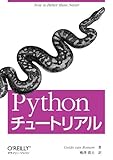如果高中棒球社女經理讀過使徒提姆的部落格~~
她就會馬上開始學Python......也許吧? :P
據說"如果高中棒球社女經理讀過杜拉克的管理學"是前陣子日本暢銷書排行榜排名第一名,
既然管理學可以,Python應該也可以吧, "import 管理學"什麼的我們Python應該也有吧?
嗯嗯 是不是乾脆把我的部落格名稱也改一改~~ 之後就可能會突然爆紅也不一定? XD
==
老實說像我這麼發懶的部落格作者,
是根本不奢望會有讀者的,
說來說去這部落格不過就是個一時自娛娛人的消遣跟筆記罷了,
但是即使如此,
突然發現部落格去年居然只更新兩格,
也是有種感受到被歲月的巨輪無情的從身上碾過的感覺~~
"啊啊啊~~ 老的無話可說了嗎?"
"好歹出來寫篇Python真是太讚了 然後出來喊個兩聲表示還活著也好吧?"
"連廢文都沒有了嗎?"
==
不然就把這一篇改成2011年我們來學Python好了~~
反正從一起頭這篇就註定是個廢文不如就這樣廢下去好了~~
所以從現在開始就把這格的主題定調為 "2011大家學python" 好了~~
(咦 高中棒球社女經理到哪去了? 真是隨便啊! 還有學PYTHON根本就不廢啊!!! ~~ )
啊啊不管了~~ 事實上啊~~ 嚴肅的看待"學python"這件事本身就是很奇怪的一件事~~
好像非得拿本書認真的讀完Python語法才叫在學~~
這樣一點都不對啊~~ Python不是這樣學的~~ 學Python應該是要很愉快的啊!
這就好像教完所有文法再開始叫你講英語一樣來學英語~~
因為一點用也沒有所以一點也不愉快~~
你如果要當Python特許教師也許可以這麼學~~ (不過... 有這種職業嗎?...)
但是正常人不應該是這樣學的~~
很好~~ 既然你都看我的廢話看到這邊了~~
(真是驚人的毅力啊~~ 你完全有成功人士的資質啊!!!)
看來你就是"2011大家學python"這格廢文的目標讀者群~~
我就特別對待你~~
教你史上最快學習Python的方法~~
絕對保證你聽也沒聽過~~
~~ ~~ ~~
因為我也是隨便講講的!!!
(什麼,,,不想學了? 我偏偏就想教啦, 就跟你說我這格是老人湊字數的你到現在還聽不懂喔?
你就完成一個孤單寂寞老人的心願這樣也不行喔? 你你你~~~
)
對~~~ 就是你 ~~~
不管了~~~ 聽我說第一步~~
聽清楚了喔~~
就是先把你手上的什麼XXX Python 然後封面還有動物樣子的書先放下...
(疑這個捏他太深奧了嗎? 啊啊啊 等一下會不會接到書商打電話來抗議啊? 反正他們應該早就賣不好了應該沒什麼差吧 點點點)
別人怎麼教你的我不管~~ 既然你上了我們Python神教的好船~~
我們就不會眼睜睜的看你沉入書海~~
這年頭也不知道吹什麼風 Programmer家裡的書櫃都快變成動物圖鑒了~~
我們是來學寫程式的不是來當圖書館還是動物園管理員的~~
好了我廢話真多 (真是極度自覺啊!)
再來再來
開始第二個心法~~
那就是~~
抄
疑? ㄟㄟㄟ???
怎麼可以呢 從小到大我們的尊敬的老師父母兄弟姐妹親朋好友阿公阿媽還有隔壁班的阿花都跟我們說這樣是不行的啊~~~
俗話說的好~~ 天下文章一大抄~~
程式碼~~ 更是要抄~~
熟讀唐詩三百首~~ 不會作詩也會吟~~
抄太難聽的話 就改成謄~~
就是像打開習字帖, 然後像永字八法般的練法~~
打開你的編輯器 找個有興趣的程式 把別人的程式碼抓過來 開始改~~
看不懂的就查 查不到的就想 想不出的就問 問不到的就再認真看認真查認真問~~
反正你已經閒到在看我的文章 肯定是很閒的 不如就認真點抄...
光明正大的抄 快樂的寫寫寫~~
就把他當作是老師全班只准你一個人openbook的去考試吧! (這真是太爽了 乖小孩不要學)
~~
再來再來就是要登堂入室了~~
這就不能只是抄了~~
基本上你抄久了 大概也已經到了不用參考別人的程式 就可以自己動手從無到有開始寫的境界了~~
這個時候就可以開始看書看文章,寫自己喜歡的程式~~
之後再學些別的東西讀點不相關的東西跟學些其他自己感興趣的程式語言都有所幫助~~
總之就是個落花流水皆文章的階段~~
等到了這個階段開始也就可以開個部落格寫些廢文騙個字數了 (疑??? 幹嘛又自婊???)
===
"""
廢話真的是很多 而且為什麼總共只寫了三步啊!!! 而且第三步分明就是在騙字數啊~~
什麼因為寫太多廢話連自己都覺得煩了??? 這什麼理由到底負不負責任啊~~
責任編輯到底是誰啊~~ 這麼廢的文章也敢PO出來喔~~
"""
以上是來自某讀者內心的OS,
可是本格宗旨就是插科打渾的未必就是胡言亂語,
語重心長的也未必就是真知灼見,
總而言之就是力求一種精神錯亂的頹廢美學~~
反正網路流行騎牆派 哪裡鄉民多 哪裡就有真理
我們廢話黨是不在乎的~~ (那來的廢話黨你不是Python教的嗎?)
總之一個人神智錯亂的時候 廢話都很多 尼采不也整天嚷嚷的說什麼超人來了嗎?
好歹我也沒寫什麼什麼什麼如是說的寫了一大本~~ 頂多只是幻想著高中棒球社女經理會讀一下我的部落格而已~~
啊 經理 對不起我是個阿宅~~ 我還有二次元complex 沒藥醫的!
====
總而言之 2011年我終於有了我的第一格! (真是個明智的收尾)
而且除了Python很讚這種廢話我還真的吐不出什麼象牙~~
說到底TIOBE都已經衝到第
http://www.tiobe.com/index.php/content/paperinfo/tpci/index.html
到現在還不知道Python的優點還只記得Python的缺點分明就是你的問題~~
你不來用是你賠又不是我賺~~ 我一點都沒有成就感啊~~
嗯嗯 我再小神晶下去應該有讀者要發飆了 (疑? 真的有讀者啊? 你們辛苦了...)
再次廣告一下我部落格的右下角有著"本站文章自High居多, 請勿嚴肅看待"的標語
這不是寫著玩的 因為我純粹是自HIGH自爽~~
你們萬一讀了心跳加速~~ 人家我也是不負責的唷(心)....
===
嗯嗯~~ 咳咳~~
感謝各位的收看 咱們2012見... (疑!!!!??? 這個人都懶到有自覺了啊~~ )
啊對了
如果你真的是高中棒球社女經理 其實我們聊些別的也可以~~ (傻笑~~ 被打飛~~)
===
(完)








